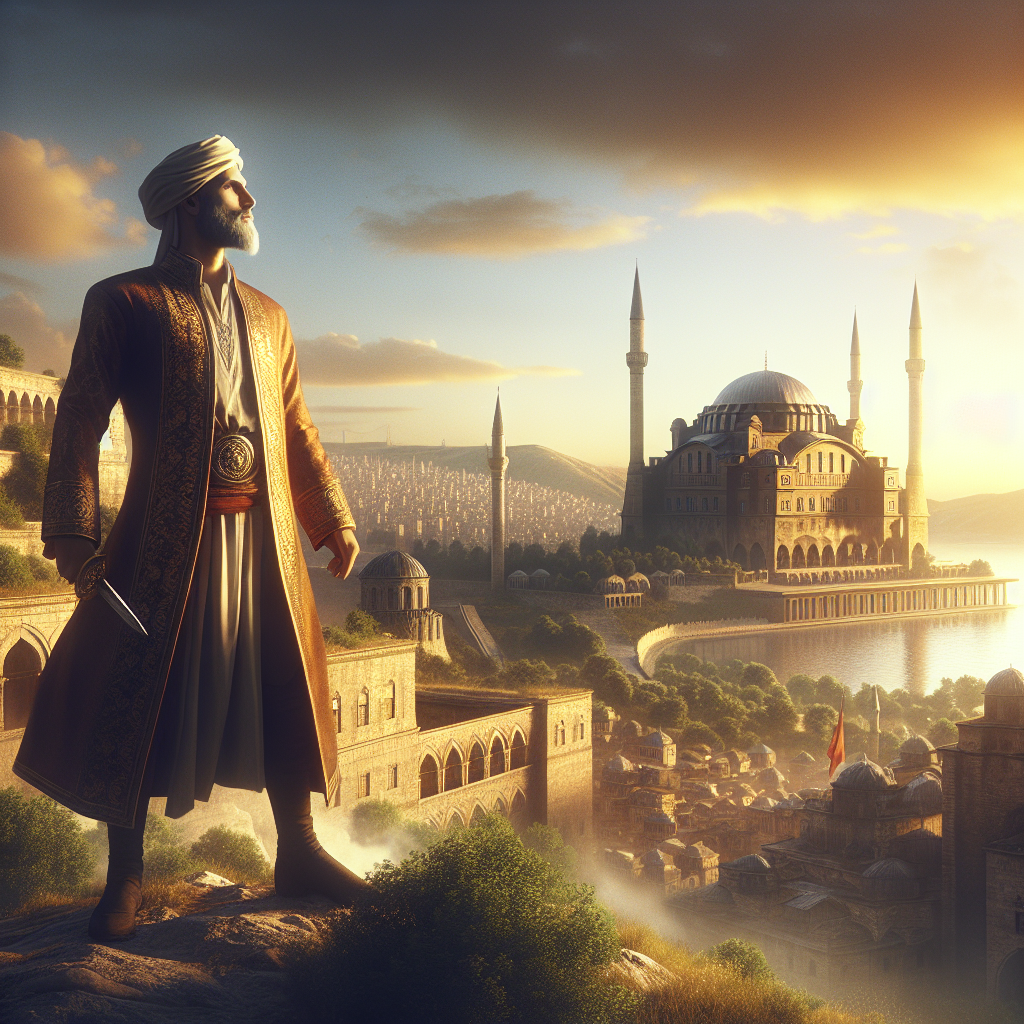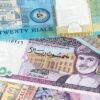From Noble Beginnings to Legendary Conqueror Salah ad-Din’s Early Years
The life of Salah ad-Din, known as Saladin in the Western world, is often cloaked in myth and legend. Before he became the celebrated sultan who fought valiantly during the Crusades and reclaimed Jerusalem, he was just a boy destined for greatness. This blog post explores the early years of Salah ad-Din to uncover the roots of his legendary status. By examining his upbringing, influences, and initial experiences, we’ll gain insight into how the foundations were laid for a man who would change the course of history.
The Birth of a Legend
Salah ad-Din Yusuf ibn Ayyub was born in Tikrit, in modern-day Iraq, in 1137 or 1138. The Ayyubid family, to which he belonged, was of Kurdish descent, known for their loyalty to the ruling Zengid dynasty. This family background provided Salah ad-Din with a strong sense of honor and duty from a young age. The town of Tikrit was also a strategic location, rife with political intrigue and military significance, which would have sparked an early interest in governance and strategy in the young boy.
Salah ad-Din’s father, Najm ad-Din Ayyub, was the governor of Tikrit, and his uncle, Shirkuh, was a respected military leader. These influential figures in his life provided him with an education fit for a future leader. From them, Salah ad-Din learned both the art of war and the nuances of political maneuvering. The family’s relocation to Mosul following a dispute in Tikrit marked the beginning of a new chapter in Salah ad-Din’s life, setting him on a path towards his destiny.
Though he was born into a turbulent period, Salah ad-Din’s early life was not without joy and normalcy. He enjoyed the companionship of his siblings and cousins, often engaging in games that mimicked the battles and political scenarios he witnessed around him. These early experiences not only shaped his character but also planted the seeds of ambition that would grow into his remarkable legacy.
Education and Mentorship
Salah ad-Din’s education was both comprehensive and rigorous, focusing on traditional Islamic studies and military training. He was well-versed in the Quran and familiar with the Hadiths, the sayings and actions of the Prophet Muhammad. This religious grounding instilled in him a deep sense of faith and morality, which would later guide his leadership style. His intellectual curiosity extended beyond religious texts, encompassing philosophy, mathematics, and astronomy, all of which broadened his horizons.

A pivotal figure in Salah ad-Din’s early development was Nur ad-Din, the Zengid ruler of Aleppo and Damascus. Nur ad-Din was a patron of scholars and an aspirational leader who sought to unite the Muslim world against the Crusaders. Salah ad-Din admired Nur ad-Din’s vision and commitment, and under his mentorship, he learned the importance of unity and resilience. This relationship proved instrumental in shaping Salah ad-Din’s ideology and future ambitions.
Military training was a crucial component of Salah ad-Din’s upbringing. Under the watchful eye of his uncle Shirkuh, he learned cavalry tactics, archery, and siege warfare. These skills would later prove invaluable in his campaigns across the Middle East. Salah ad-Din’s exposure to military strategies and philosophies during his formative years cultivated his tactical acumen and prepared him for the immense challenges ahead.
Early Military Experience
Salah ad-Din’s first notable military engagement occurred when he was in his twenties, as part of his uncle Shirkuh’s campaigns in Egypt. The political landscape of Egypt presented a complex challenge, as it was caught in a power struggle between the Fatimids, the Crusaders, and the Zengids. Shirkuh’s military expeditions aimed to establish Zengid influence in the region, and Salah ad-Din played a crucial role in these endeavors.
During the Siege of Alexandria in 1167, Salah ad-Din demonstrated outstanding bravery and strategic insight. His ability to inspire his troops and adapt to changing circumstances earned him the respect of his peers and the trust of his leaders. Although the siege ended in a truce, the experience taught Salah ad-Din valuable lessons about diplomacy and negotiation, skills that would prove essential in his future conquests.
Salah ad-Din’s military prowess continued to grow, culminating in his appointment as the vizier of Egypt in 1169 after Shirkuh’s death. This position granted him significant power and autonomy, enabling him to implement reforms and strengthen the region’s defense forces. Salah ad-Din’s leadership in Egypt marked the beginning of his transformation from a skilled commander to a visionary leader with a broader mission.
Establishing Leadership in Egypt
Upon assuming the role of vizier, Salah ad-Din faced numerous challenges, including internal political instability and external threats from both the Crusaders and the Fatimid caliphs. Despite these obstacles, he quickly established himself as a capable and determined leader. His strategic reforms and unyielding resolve earned him the loyalty of his subjects and the admiration of his contemporaries.
Salah ad-Din’s early governance focused on consolidating power and strengthening Egypt’s military capabilities. He reorganized the army, improving its discipline and efficiency. His emphasis on merit-based promotions and loyalty over nepotism fostered a sense of unity among his troops, which would prove crucial in the battles to come.
Beyond military matters, Salah ad-Din also sought to improve the lives of his people. His administration prioritized infrastructure projects, such as the construction of canals and fortifications, which enhanced Egypt’s economic stability. His commitment to justice and fairness endeared him to the population, allowing him to rule effectively and build a foundation for future success.
The Seeds of Unity
Salah ad-Din’s vision extended beyond Egypt. He aspired to unite the Muslim world against the Crusader states, a formidable presence in the Levant. His dedication to this cause was deeply influenced by his mentor Nur ad-Din, whose dream of a unified Muslim front had remained unfulfilled. Salah ad-Din resolved to carry forward this mission, recognizing that unity was the key to lasting peace and prosperity.
In pursuit of this goal, Salah ad-Din engaged in diplomacy and alliances, strengthening ties with neighboring regions and leaders. His reputation as a just and honorable leader facilitated negotiations, and he skillfully navigated complex political landscapes to forge alliances that bolstered his cause. His efforts to bridge divides and foster cooperation laid the groundwork for his eventual success in reclaiming Jerusalem.
Despite the formidable task ahead, Salah ad-Din’s unwavering belief in the power of unity and his tireless dedication to the cause inspired those around him. His leadership style, characterized by compassion and humility, resonated with both soldiers and citizens, earning him a place in history as a symbol of strength and resilience.
The Path to Power
In 1171, Salah ad-Din’s rise to power reached a significant milestone with the abolition of the Fatimid Caliphate in Egypt. This bold move solidified his authority in the region and marked the beginning of the Ayyubid dynasty. By establishing Sunni Islam as the dominant faith, Salah ad-Din reinforced his legitimacy and strengthened his position in the Muslim world.
With his authority firmly established in Egypt, Salah ad-Din turned his attention to expanding his influence across the Levant. His campaigns against the Crusader states and rival Muslim factions showcased his military brilliance and strategic vision. Through a combination of tactical precision and diplomatic finesse, he steadily gained control over key territories, inching closer to his ultimate goal of unifying the Muslim world.
Salah ad-Din’s ascent to power was not without challenges. His determination to achieve his vision often brought him into conflict with rival leaders and factions, testing his resolve and strategic acumen. Yet, his ability to adapt and his unwavering commitment to his mission propelled him forward, ultimately leading to his historic triumphs.
The Legacy of Salah ad-Din
Salah ad-Din’s legacy extends far beyond his military achievements. He is remembered as a paragon of chivalry, embodying the ideals of honor, justice, and compassion. His commitment to these principles earned him the respect of both his allies and his adversaries, ensuring his place in history as a revered leader.
Under Salah ad-Din’s rule, the Ayyubid dynasty flourished, ushering in an era of stability and prosperity. His efforts to promote education, culture, and religious tolerance left a lasting impact on the regions he governed. Salah ad-Din’s reign served as a beacon of hope, inspiring generations to come and shaping the course of history in the Muslim world.
Perhaps most notably, Salah ad-Din’s legacy endures in the realm of popular culture, where he is celebrated as a symbol of courage and integrity. His life and accomplishments continue to captivate the imagination of people around the world, reminding us of the enduring power of leadership, unity, and perseverance.
Lessons from Salah ad-Din’s Early Life
Salah ad-Din’s early life offers valuable lessons for leaders and individuals seeking to make a positive impact in the world. His unwavering commitment to his beliefs and his ability to adapt to challenges are qualities that remain relevant today.
One key lesson from Salah ad-Din’s early life is the importance of mentorship and education. The guidance he received from figures like Nur ad-Din and Shirkuh played a pivotal role in shaping his character and vision. Surrounding oneself with mentors and seeking knowledge can provide invaluable insights and pave the way for personal growth and success.
Another lesson is the power of unity and collaboration. Salah ad-Din recognized that true strength lies in coming together for a common purpose. His ability to build alliances and inspire loyalty among diverse groups of people was instrumental in achieving his goals. In our interconnected world, fostering collaboration and unity can lead to positive change and lasting impact.
Relevance to Modern Leadership
Salah ad-Din’s leadership style and values hold relevance for modern leaders navigating complex and dynamic environments. His emphasis on justice, integrity, and empathy serves as a timeless model for ethical leadership.
In an era marked by rapid technological advancements and global challenges, Salah ad-Din’s ability to adapt and innovate is particularly instructive. Leaders who remain open to new ideas and approaches are better equipped to address the evolving needs of their organizations and communities.
Furthermore, Salah ad-Din’s focus on building bridges and fostering understanding remains crucial in an increasingly interconnected world. In an era of divisive rhetoric and polarization, leaders who prioritize dialogue, empathy, and collaboration can drive meaningful change and create a more inclusive and harmonious society.
The Enduring Impact of Salah ad-Din
Salah ad-Din’s legacy continues to shape the world in profound ways. His contributions to culture, governance, and diplomacy continue to inspire leaders, scholars, and thinkers across the globe.
His story serves as a reminder that individuals have the power to transcend their circumstances and leave a lasting impact on the world. Salah ad-Din’s unwavering dedication to justice, unity, and compassion serves as a beacon of hope, guiding us in our pursuit of a better future.
By reflecting on Salah ad-Din’s early life and the values that guided him, we can draw inspiration and motivation to effect positive change in our own lives and communities. His legacy reminds us that the path to greatness is paved with integrity, resilience, and a commitment to the greater good.
Continuing the Journey of Discovery
Salah ad-Din’s early life provides a rich tapestry of experiences and lessons that continue to captivate and inspire. By exploring the foundations of his legend, we gain a deeper understanding of the qualities that defined him as a leader and a visionary.
Whether you are a student of history, a leader seeking inspiration, or simply curious about the life of Salah ad-Din, there is much to be learned from his remarkable story. By drawing on the lessons of the past, we can shape a brighter future for ourselves and those around us.
To continue your exploration of Salah ad-Din’s life and legacy, we invite you to explore additional resources, engage in discussions, and reflect on the enduring impact of this extraordinary leader. Together, we can keep the spirit of Salah ad-Din alive and honor his contributions to history and humanity.










